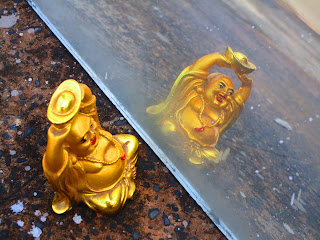There's something I feel strongly about, and that is shaming or ridiculing someone for their looks/ weight/ height/ colour of skin/ age/ social standing/ English speaking abilities and sundry other reasons.
I have faced weight shaming in my adolescence, and it has left quite a mark on me. I was called moti, or plump, and wasn't included in hip circles.
In college, I used to dress in salwar kameez, so I was labelled a behenji. When I donned skirt and top for a role in a college play, the girls went wow at my open hair, hip look. What a transformation, they said. Why don't you always dress like this?
Because I value comfort over looks, I wanted to say. Because my mother only buys me traditional clothes. Because I travel to college in a DTC bus where leers and sundry "touching" were the normal routine. And even after covering up so much, I feel so exposed.
But I couldn't say all this, and just kept quiet, gloating in the praise and acceptance of my trendy classmates. It mattered so much that they thought I was hip too!
Today, I have accepted my flaws, and am confident in my skin. I don't feel the maddening urge to ""belong".
But, you know what I face now?
Age shaming. "Ohhh you are so old?" "Ohhh, poor thing, you don't have much stamina!" "At your age, even I would feel tired". You get the drift?
So, at whatever state or position or age we are in, criticism and sarcasm are a given. And unfortunately, it is we women who do it.
As we come to the end of a festival worshipping Shakti, let's pledge to be kinder to each other.
More accepting, more open, less judgemental. That will be true Devi worship.
Hail, Ma Durga!
#durgapuja
#worshipofshakti
#randomthoughts



Comments
Post a Comment